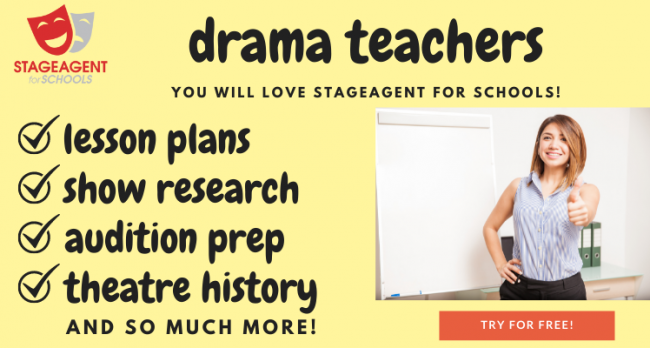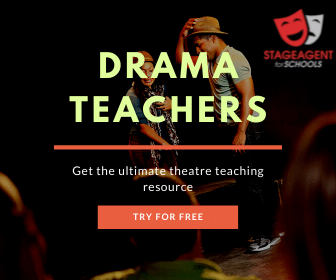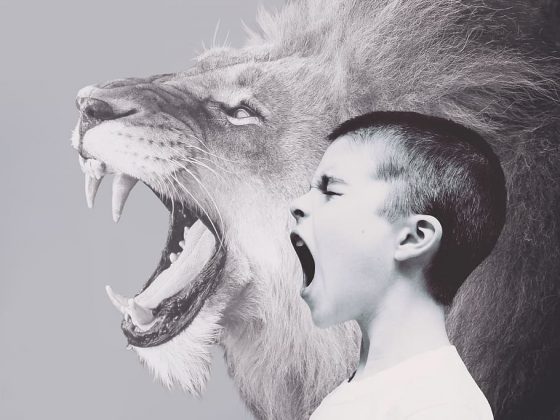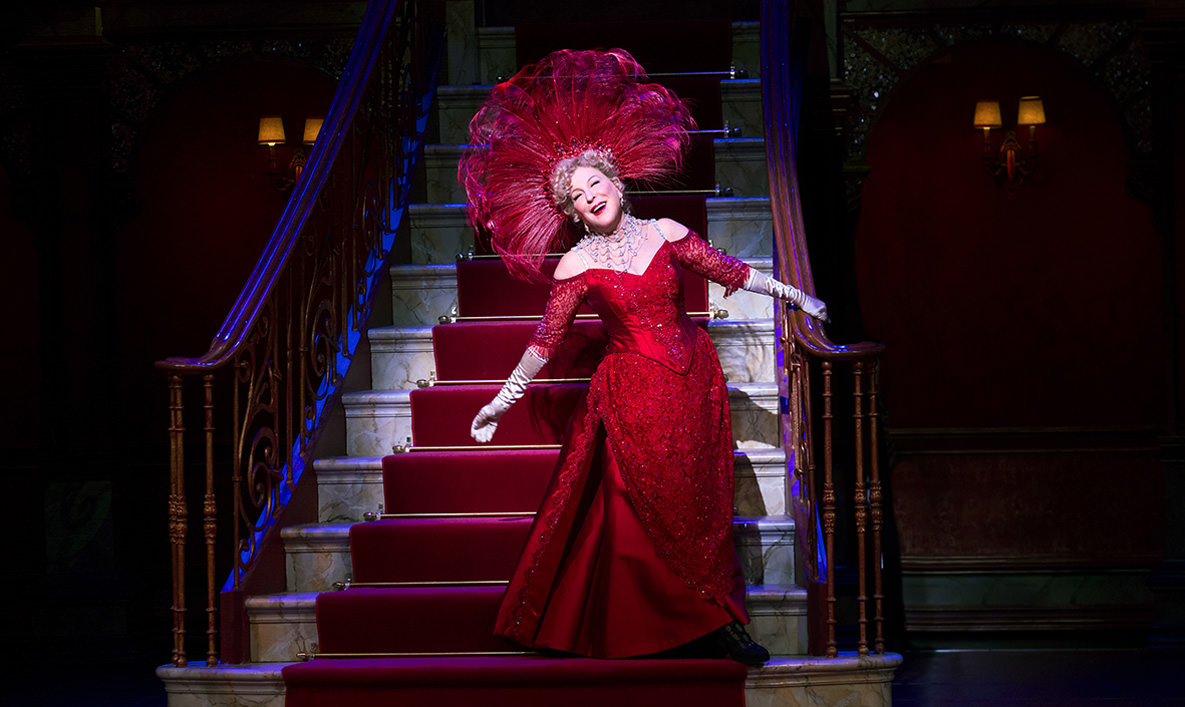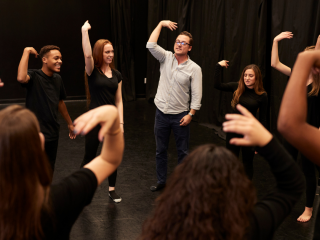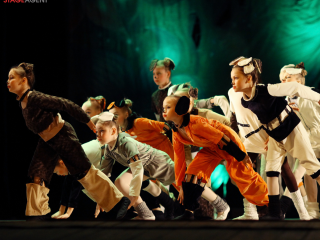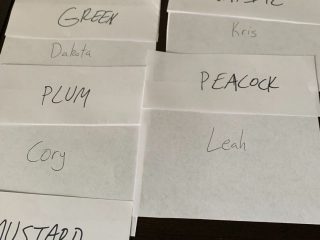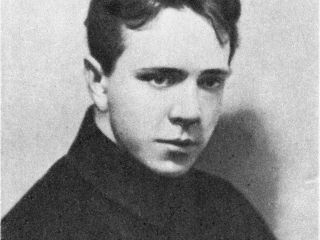Though I pride myself on occasionally turning out a great production of James & the Giant Peach or The Lion King JR., I didn’t become a theatre educator for the performances. Though an integral and awesome part of the job, I started working with kids in theatre for the same reasons I became a theatre kid myself: the community.
Theatre people are regularly working on building something beautiful together. Together, we form bonds, we think critically, find emotional depth, and create art. At the root of our work is our humanity. I mean yeah, we direct productions, sure. But in doing so, we’re also teaching empathy, expression, communication, problem solving, and confidence. A ton of things! A ton of beautiful things! Like, lots, and lots of super vital things!
Okay, cool. Now make that happen on Zoom. Or in masks 6ft apart. Or with half your group on Zoom and half of them in masks 6ft apart. Should be easy, no?
(Cue: author faints. Or cries. Cries so hard she faints.)
No matter how your theatre program or theatre classroom is operating in a COVID world, you are presented with new challenges that cut to the core of our work. I can’t see half that kid’s face–how should I know if they’re expressing the character’s emotion? If they’re fully committed to the scene? Or if they’ve even smiled at my stupid joke? How do I engage this masked child? Or this other one who’s in a whole different world behind their computer screen?
It is hard, but I’m still trying.
Here are some suggestions for creating community in your theatre program during a pandemic. (And by “suggestions,” I mean–some things that I’ve tried that weren’t a total flop.)
Masked in person?
Have a photo of yourself smiling, where students can easily see your whole face and what you look like. Perhaps as a first day activity–kids are able to draw or take self-portraits as a way to present their whole face to you and the rest of the group.
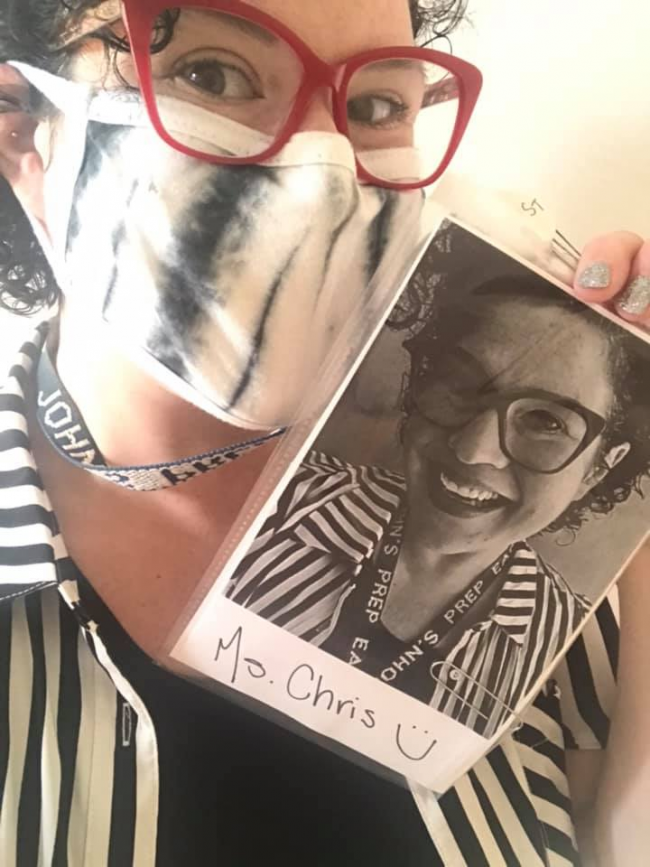
Memorize names immediately and prioritize them doing the same.
Being known by your name is super important and helps form bonds much more quickly. You are showing your students that you value them and are working to get to know them.
I hear people say all the time that they’re “bad at learning names”–but usually, learning names is a learned and practiced skill more than a natural gift. If I meet an adult at a party, I’ve forgotten their name before they’ve even finished saying it, because I’m not working at it in that moment. However, when I’m working with young people, I’m practicing. I’m being intentional. I’m repeating the name immediately. Sometimes I’ll say it five times in a row.
Able to do group activities (or breakout rooms on Zoom)?
In the first couple of classes/rehearsals, I’ll often do activities that require lots of small groups. As an example, I could ask kids to group themselves by what season of the year they like best (or what pets they have, favorite pizza, etc.) Then, I’ll have them discuss why it’s their favorite, and then make sure they know each other’s names in their small group. I’ll have the group report names back to the community, and have the community repeat the names back. Then do the same activity with different prompts over and over, reporting names every time. It keeps the students interacting with different groups, saying names out loud. As they learn and repeat the names, so do I. By the end of the first day, I’ve heard every student’s name out loud 10+ times.
On Zoom? Use it to your advantage.
Use the breakout rooms, use the whiteboard features, let kids screen share their work. Have performances where other students turn their cameras off and watch. Have students turn their cameras on between scenes so they can clap for their friends.
Using Google Drive?
I’ve found a lot of success using Google Drive for collaboration. A group can have a folder, dump all their resources in it, and then assign duties. “Okay, all our videos are in the folder, now Matt can take them and edit them together!” “All our photos are in the group drive, so Sheena can work on the slideshow!” “The scene I wrote is in the drive, can you copy/paste it into our bigger document?” Etc.
Ask your students/participants for ideas.
When you give strict parameters and ask for ideas, you can brainstorm together. It helps your own process. “Okay y’all, I really want to play ______, but we’d have to be 6ft apart, masked, and all facing the same direction…any ideas how to adapt it?” or “Any ideas how we could play _______ on Zoom?” It helps you problem-solve together, it takes the pressure off of just you, and your kids realize you’re valuing their input and ideas.
As an example: I am currently teaching hybrid in such a way that a class consists of ½ my students on Zoom and ½ my students in front of me simultaneously. It’s been really tricky to figure out how to get the two groups connected when they’re never in the same physical space together. When kids requested we play “Mafia”, I asked for help on how we might be able to include both parts of the class at the same time. Together, we brainstormed and tried different ways to play until we found a way that worked best. We’ve made great use of the private chat feature on Zoom!
Adapting theatre games.
Think about the game “Machine” where every student adds a new movement/sound to the machine. What if every piece is 6 feet apart? How do the pieces communicate? What movements signify machines that work wirelessly or at a distance? (Or how might they make a machine using their dedicated zoom boxes?) How do you unpack this activity to talk about keeping communication in a COVID world?
A lot of times, I’ll use spectrums or “things we have in common” type games where I’ll have kids step forward or run across the circle if they agree with a statement said by another student. Adapt this in person by starting 7 feet apart and stepping one foot in and immediately back to signify “agreement” with a statement. (On Zoom, use proximity to the camera to suggest feelings about a particular statement.)
The point is…reimagine the things that matter. Ask for help from your participants. If you spend a whole class or rehearsal trying their ideas and they don’t work, you’ve learned what doesn’t work and the kids have learned that you’re trying new things for them. Some days, that’s the best it may get. And other days, you’ll have little breakthroughs that remind you why this is your calling.
These are just a few things that I’ve found successful this year. I’ve tried a lot that doesn’t work. I’ve had a lot of flops. I gave myself permission to change course when I can sense that something isn’t working. Things don’t work….often. However, my relationships with my students, actors, and technicians remain strong. My product may not always be able to meet my expectations this year, but the process matters more than ever. It matters for the kids struggling to connect and make sense of pandemic-school. And it’ll matter to you too.

